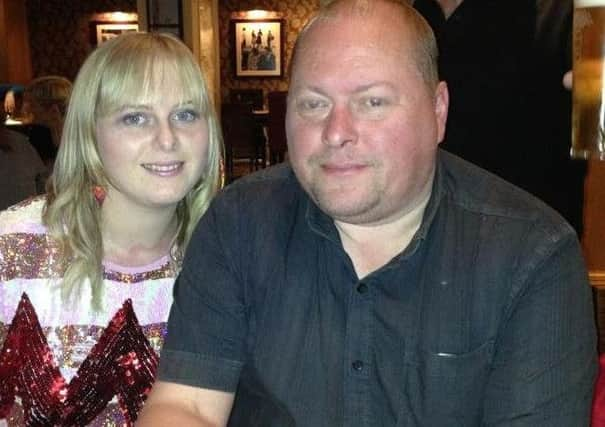Manchester IRA survivor at Stormont to mark terror victims' day


Neil Tattersall, 46, is one of a number of speakers marking the European Day for Victims of Terrorism in the senate chamber.
The designation of a special European-wide commemoration, which is held each year during March, began following the 2004 Madrid bombings.
Advertisement
Hide AdAdvertisement
Hide AdTUV leader Jim Allister has hosted or co-hosted an event at Stormont every year since his election to the Assembly in 2011.
Speaking ahead of his visit to Belfast, Mr Tattersall said he has suffered years of psychological problems, homelessness and despair as well as the profound physical effects of his blast injuries.
“We as innocent victims and survivors of terrorism deserve justice, practical help and recognition from the Government. We are the innocent - we are not the perpetrators and we should stop being treated like pariahs.”
On December 3, 1992, the IRA exploded two bombs in Manchester city centre injuring 65 people.
Advertisement
Hide AdAdvertisement
Hide AdThe first was in a car at Parsonage Gardens in the heart of the city’s commercial district while the second was close the Anglican cathedral.
Following the first explosion at 8.40am, the public were evacuated from city centre buildings and unwittingly moved by police into the area of the second explosion which occurred shortly before 10.05am causing the majority of the injuries.
Mr Tattersall, whose then fiancée was expecting their first child, was the most seriously injured of the casualties.
“All I could think was about my fiancée, my unborn child would never know its father,” he said.
Advertisement
Hide AdAdvertisement
Hide Ad“And then I thought of my mum and dad - what was this going to do to them? I told the police to tell them I loved them.
“One of the police officers broke off. He said he would drive an ambulance in himself as nobody was allowed in the area. He came back with a crew that was prepared to come into the no-go zone. I believe that’s what saved my life.
“I remained in hospital for 20 days.”
Mr Tattersall said the bombing left him with post traumatic stress disorder and changed his life forever.
“I was a very confident very active person with a promising future in front of me. Little did I know that by 10.03am that would all change. My dad took me for a drive around one evening, he told me how much it was hurting him to see me the way I was and it would probably have been easier for me if I hadn’t made it that day! My dad died a few months later from a broken heart.”
Advertisement
Hide AdAdvertisement
Hide AdAustin Stack, whose father Brian was shot and fatally wounded by the IRA while serving as a chief prison officer at Dublin’s Portlaoise jail in March 1983, will also speak at today’s event.
Announcing the date for this year’s commemorations, the European Commission said: “In unity and defiance we denounce all forms of terrorism worldwide, and with respect and honour we remember the victims. We have lost too many friends, neighbours and loved ones in the past year. We have witnessed too many atrocities.”
TUV leader Jim Allister said the event is expected to last around 30 minutes.
“As in previous years, the event will take the form of a minute of silence in memory of murdered victims, followed by some victims telling their stories so that we might hear some of the untold accounts of the consequences of terrorism,” he said.
Advertisement
Hide AdAdvertisement
Hide Ad“I am grateful to Alban Maginness MLA and Mike Nesbitt MLA for joining me in sponsoring this event. I believe this will be a worthwhile effort and in previous years I received very positive feedback from those who attended. It is but right that one of the regions of Europe most savagely ravaged by terrorism should mark this important day.”
“Given the events of recent days, with the Paris attacks at the end of last year and a bomb attack in east Belfast just last week, this event has become even more relevant.”